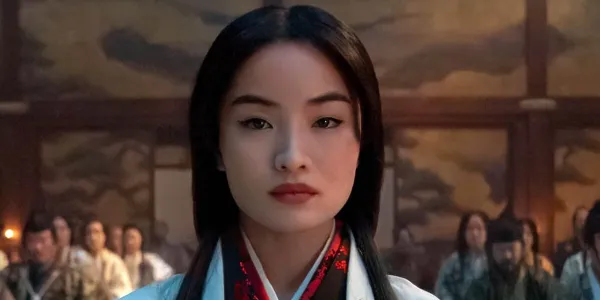In the riveting historical drama Shōgun, actress Anna Sawai breathes life into the character of Toda Mariko, whose story unfolds with heart-wrenching tragedy and profound emotional depth. In a recent interview with Collider, Sawai delved into the complexities of Mariko’s character and the historical context that shapes her harrowing journey.
Mariko’s narrative in Shōgun is marked by the weight of her family’s dark past, a burden that ultimately drives her to the brink of despair. Sawai explained that Mariko’s desire to take her own life stems from the disgrace and tragedy inflicted upon her family by her father. In the patriarchal society of 17th-century Japan, where honor and obedience held paramount importance, Mariko’s father’s actions resulted in the deaths of her entire family, leaving her feeling isolated and without purpose.
Sawai emphasized that Mariko’s anguish and longing for death are deeply rooted in the societal norms and expectations of the time. In a poignant reflection on Mariko’s journey, Sawai highlighted the character’s transformation from a seemingly aimless individual to a woman driven by clarity and purpose. Mariko’s role as an interpreter becomes a source of empowerment and fulfillment, aligning with her father’s intentions for her and giving her a sense of agency in a world that seeks to constrain her.
Furthermore, Sawai drew parallels between Mariko’s plight in Shōgun and the real-life experiences of historical figure Hosokawa Gracia, upon whom Mariko’s character is based. Like Mariko, Hosokawa endured the stigma of being the daughter of a disgraced traitor, facing ostracism and hardship as a result. Sawai underscored the resonance between Mariko’s struggles in the series and the historical realities faced by women like Hosokawa during the tumultuous Sengoku period of Japanese history.
The portrayal of Mariko’s turmoil in Shōgun serves as a poignant reminder of the challenges and injustices faced by women in centuries past. Mariko’s story, rooted in historical authenticity and brought to life through Sawai’s compelling performance, sheds light on the resilience and resilience of individuals grappling with the weight of tradition, honor, and societal expectations.
As viewers witness Mariko’s journey unfold in Shōgun, they are confronted with the harsh realities of a bygone era, where personal agency and autonomy were often sacrificed in the name of duty and conformity. Through Mariko’s struggles, Sawai and the creative team behind Shōgun offer a thought-provoking exploration of history, identity, and the enduring human spirit in the face of adversity.
FAQ
Who is Mariko in Shōgun?
Mariko, portrayed by actress Anna Sawai, is a central character in the historical drama Shōgun. She serves as a translator in the service of Lord Yoshii Toranaga and becomes entangled in a complex web of intrigue and tragedy.
What is the source of Mariko’s anguish and despair?
Mariko’s torment stems from her family’s dark past and the disgrace inflicted upon them by her father’s actions. This leads to the deaths of her entire family, leaving Mariko feeling isolated and without purpose.
Why does Mariko express a desire to take her own life?
Mariko’s longing for death arises from a sense of shame and the belief that she cannot bear to live without her family. However, societal norms and her marriage prevent her from taking her own life, leaving her feeling trapped and alone.
Is Mariko’s character based on a historical figure?
Yes, Mariko’s character is based on Hosokawa Gracia, a real historical figure who lived during the Sengoku period of Japanese history. Like Mariko, Hosokawa faced hardship and ostracism due to her family’s disgrace.
What parallels exist between Mariko’s story in Shōgun and the real-life experiences of Hosokawa Gracia?
Both Mariko and Hosokawa Gracia endured the stigma of being associated with a disgraced family member. They faced societal rejection and struggled to find their place in a world that sought to confine them to narrow roles dictated by tradition and duty.
What themes does Mariko’s story explore in Shōgun?
Mariko’s story in Shōgun explores themes of honor, duty, identity, and the plight of women in a patriarchal society. It delves into the complexities of personal agency and the struggle to reconcile individual desires with societal expectations.
Where can viewers watch Shōgun to learn more about Mariko’s character?
Shōgun is available for streaming on select platforms, depending on regional availability. Viewers can check streaming services or online retailers for access to the series and delve deeper into Mariko’s compelling story arc.
